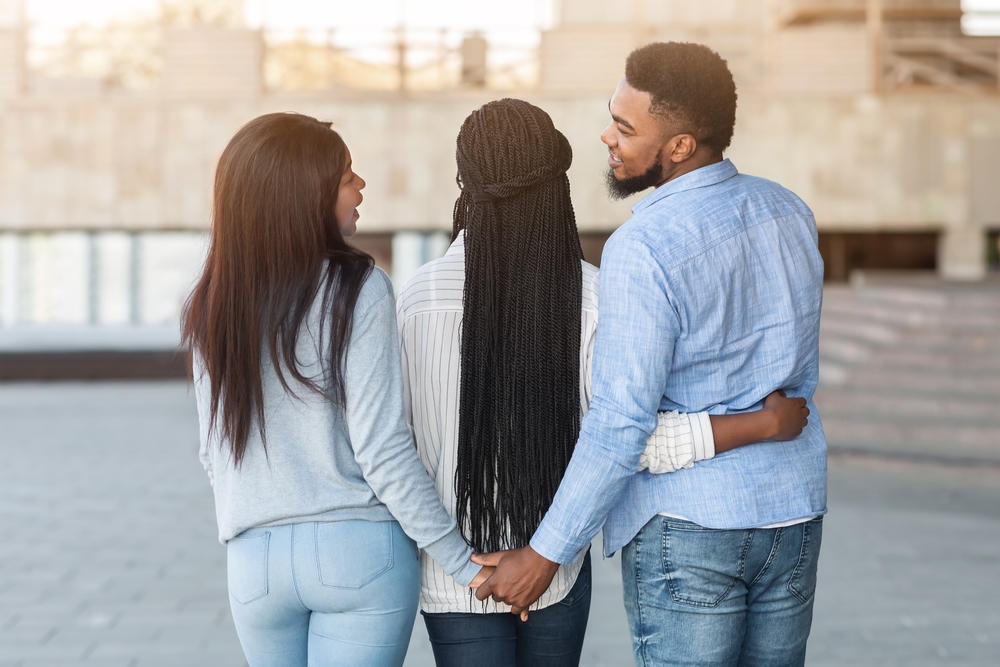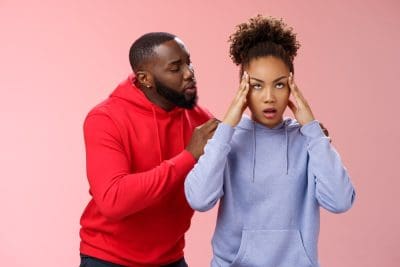The age-old question of whether dating a friend’s ex crosses an unspoken line continues to spark heated debates in today’s dating landscape. As relationship boundaries evolve with modern times, this sensitive topic touches deep emotional chords, challenging traditional notions of loyalty and friendship while raising questions about personal happiness versus social obligations.
Redefining friendship boundaries in modern dating
Modern dating has transformed dramatically with the rise of social media and dating apps, creating more opportunities for overlapping romantic connections within friend groups. This increased connectivity has complicated the traditional rules of dating, forcing many to question whether previous relationship boundaries still apply in contemporary society.
The hidden emotional impact
When romantic interests intersect with friendship circles, the emotional fallout often extends far beyond the individuals directly involved. Even in cases where the original relationship ended amicably, introducing a new romantic dynamic with a mutual friend can reopen old wounds and create unexpected emotional turbulence for everyone involved.
Understanding the friendship foundation
Long-term friendships build on trust, shared experiences, and mutual respect. These foundations can face severe strain when romantic interests overlap with friendship circles. The decision to pursue a relationship with a friend’s former partner often challenges these fundamental elements of friendship, potentially destabilizing relationships that took years to build.
The psychology behind the taboo
Relationship psychologists point to several factors that make dating a friend’s ex particularly problematic. Beyond the obvious emotional complications, these situations often trigger deep-seated feelings of betrayal, competition, and inadequacy. The human psyche naturally struggles with seeing former romantic partners move on, but when that new relationship involves a close friend, the emotional impact intensifies significantly.
Impact on wider social circles
The ripple effects of dating within friend groups extend beyond the primary individuals involved. Mutual friends often feel forced to choose sides, creating tension and discomfort in previously harmonious social settings. Group dynamics can shift dramatically, potentially fracturing long-established friend groups and complicating social gatherings.
The role of time and circumstances
Some argue that time can heal these wounds, suggesting that waiting an appropriate period after a breakup might make dating a friend’s ex more acceptable. However, determining this timeline proves challenging, as emotional healing varies significantly among individuals. What feels like sufficient time for one person might still be too soon for another.
Communication and consent dynamics
The question of whether seeking permission from the friend makes the situation more acceptable remains contentious. While some view open communication as a way to maintain transparency and respect, others argue that putting a friend in the position of having to give or deny permission creates its own form of emotional manipulation.
Long-term relationship potential
When considering dating a friend’s ex, the potential for a lasting relationship versus the guaranteed impact on friendship deserves careful consideration. While new romance might promise excitement and possibility, the stability and support of long-term friendships often prove more valuable in life’s journey.
Children and complicated dynamics
The situation becomes exponentially more complex when children are involved. Dating an ex who shares children with a friend introduces additional layers of emotional complexity and practical challenges that affect not only the adults involved but also the emotional well-being of the children.
Cultural perspectives on relationship boundaries
Different cultures maintain varying views on dating within social circles. While some societies hold strict taboos against dating friends’ former partners, others adopt more flexible attitudes. Understanding these cultural nuances can provide valuable insight into how different communities navigate these sensitive situations.
The role of social media
Social media platforms have transformed how we maintain connections with both friends and former partners. This constant digital connectivity can blur relationship boundaries and create opportunities for emotional entanglements that might not have developed in previous generations.
Professional perspectives on friendship boundaries
Mental health professionals often emphasize the importance of maintaining clear boundaries in relationships. The potential for damaged friendships, emotional trauma, and long-term social consequences usually outweighs temporary romantic satisfaction.
Alternative paths to romantic fulfillment
With today’s expanded dating opportunities, pursuing romantic connections outside immediate social circles often proves more beneficial. This approach allows for new relationships to develop without compromising existing friendships or creating unnecessary social complications.
Navigating existing situations
For those already involved in relationships with friends’ former partners, establishing clear boundaries and maintaining open communication becomes crucial. Success in these situations requires exceptional emotional maturity and commitment from all parties involved.
The value of friendship preservation
Long-term friendships often provide more stable and lasting support systems than romantic relationships. The decision to risk these foundational relationships for romantic possibilities deserves careful consideration of potential long-term consequences.
Moving forward with awareness
Understanding the complex dynamics involved in dating within friend groups helps inform better decisions about relationships. While exceptions might exist, maintaining respect for friendship boundaries often proves more valuable than pursuing romantic connections that could damage established social bonds.
The question of dating a friend’s ex remains complex, with no universal answer applicable to all situations. However, the potential consequences of such decisions often outweigh temporary romantic interests. As relationship dynamics continue to evolve, maintaining respect for established friendships and considering long-term impacts on social circles remains crucial for navigating modern dating landscapes successfully.











